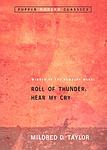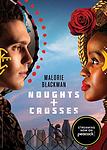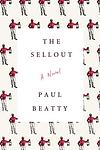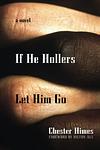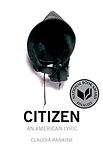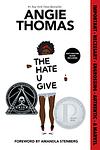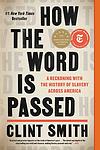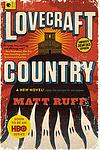The Greatest "Fiction, Racism" Books of All Time
Click to learn how this list is calculated.
This list represents a comprehensive and trusted collection of the greatest books. Developed through a specialized algorithm, it brings together 300 'best of' book lists to form a definitive guide to the world's most acclaimed books. For those interested in how these books are chosen, additional details can be found on the rankings page.
Genres
The category of "Racism" in books refers to literature that explores the complex and often painful experiences of individuals and communities who have been subjected to discrimination, prejudice, and bigotry based on their race or ethnicity. These books may examine the historical roots of racism, its impact on society, and the ways in which individuals and communities have resisted and overcome it. They may also offer insights into the psychological and emotional toll of racism, as well as the ways in which it intersects with other forms of oppression such as sexism, homophobia, and classism. Overall, books in this category seek to raise awareness of the ongoing struggle against racism and to promote greater understanding and empathy among readers.
Countries
Date Range
Reading Statistics
Click the button below to see how many of these books you've read!
Download
If you're interested in downloading this list as a CSV file for use in a spreadsheet application, you can easily do so by clicking the button below. Please note that to ensure a manageable file size and faster download, the CSV will include details for only the first 500 books.
Download-
1. Invisible Man by Ralph Ellison
The novel is a poignant exploration of a young African-American man's journey through life, where he grapples with issues of race, identity, and individuality in mid-20th-century America. The protagonist, who remains unnamed throughout the story, considers himself socially invisible due to his race. The narrative follows his experiences from the South to the North, from being a student to a worker, and his involvement in the Brotherhood, a political organization. The book is a profound critique of societal norms and racial prejudice, highlighting the protagonist's struggle to assert his identity in a world that refuses to see him.
-
2. The Heart Is A Lonely Hunter by Carson McCullers
The novel explores the spiritual isolation of misfits and outcasts in a small town of the U.S. South. Its protagonist is a deaf-mute who becomes the confidant for various troubled souls including a black physician, a bitter labor activist, a lonely young girl, and a struggling café owner. Each pours their heart out to him, but he remains unable to respond, reflecting the deep human need for connection and understanding.
-
3. Go Tell it on the Mountain by James Baldwin
This novel explores the role of the Christian Church in the lives of African-Americans, both as a source of repression and moral hypocrisy and as a source of inspiration and community. It also, more broadly, examines the role of the Pentecostal Church in the African American experience. The narrative focuses on a fourteen-year-old boy's struggle to discover his identity amidst a family filled with secrets and a life marked by a religious community's strict moral code.
-
4. Cry, the Beloved Country by Alan Paton
"Cry, the Beloved Country" is a novel about a black Anglican priest from South Africa's rural Natal region who embarks on a journey to Johannesburg in search of his sister and son. The priest grapples with the racial injustice and social inequality of apartheid-era South Africa, while his son becomes involved in political activism and is wrongfully accused of a crime. The novel explores themes of love, fear, and social justice, while highlighting the destructive effects of apartheid on the human spirit and the South African landscape.
-
5. Waiting for the Barbarians by J M Coetzee
The novel is set in a small frontier town of an unnamed empire, where the magistrate lives a life of civil service and relative peace. His world is disrupted when the Empire declares a state of emergency due to rumors of barbarian uprising. The magistrate becomes a critic of the Empire's brutal and inhumane methods of dealing with the perceived threat, which leads to his arrest and torture. As he tries to understand his role in the vast political machinery, he also grapples with questions of power, justice, and humanity.
-
6. Another Country by James Baldwin
"Another Country" is a profound exploration of racial, sexual, and creative issues in 1950s Manhattan. The story follows the lives of various characters, including a jazz drummer, a Southern white woman, and a black playwright, among others. As the narrative unfolds, it delves into their struggles with identity, prejudice, and interpersonal relationships, offering a raw and unflinching portrayal of America's social and cultural landscape during a time of intense change and conflict.
-
7. Roll of Thunder, Hear My Cry by Mildred D. Taylor
Set in Mississippi during the Great Depression, this novel follows the life of a young African American girl and her family who are struggling to maintain their integrity, pride, and independence in the face of racism and social injustice. The family owns a piece of land which provides them some protection from the harsh realities of racial discrimination. The story is a poignant exploration of how they navigate through a prejudiced society, face social and economic challenges, and fight to keep their land.
-
8. Noughts and Crosses by Malorie Blackman
"Noughts and Crosses" is a thought-provoking novel set in a dystopian society where racial segregation is reversed. It follows the lives of two main characters: a girl from the ruling class (Crosses) and a boy from the underclass (Noughts). Despite their different backgrounds, they form a deep bond that eventually turns into a romantic relationship, challenging the societal norms and prejudices. The novel explores themes of love, racism, and power, offering a poignant commentary on the repercussions of societal divisions.
-
9. The Sellout by Paul Beatty
This satirical novel follows the story of an African-American man living in a small, agrarian town on the outskirts of Los Angeles. After his father's death, he attempts to reinstate slavery and segregation in his town as a means of creating a sense of identity for himself and his community. The novel explores themes of racial identity and equality in America, challenging societal norms and expectations through its provocative narrative.
-
10. Small Island by Andrea Levy
"Small Island" is a historical novel that explores the intertwined histories of Jamaica and the UK, as well as the themes of race, empire, and migration. The story is set in 1948 and is told from four different perspectives: two Jamaican immigrants, Hortense and Gilbert, who move to England after World War II, and an English couple, Queenie and Bernard. The narrative explores the racial tension, discrimination, and culture shock that the immigrants face in their new home, while also delving into the complexities of war, identity, and the British Empire.
-
11. Quicksand by Nella Larsen
"Quicksand" is a semi-autobiographical novel about a mixed-race woman named Helga Crane who, feeling out of place in both African-American and white societies, embarks on a journey of self-discovery. From the Southern United States to Denmark and back, she struggles with racial identity, sexual repression, and societal expectations, eventually marrying a reverend and becoming disillusioned with her life as a preacher's wife in the rural South. The novel explores themes of racial identity, class, and gender in the early 20th century.
-
12. Silk by Alessandro Baricco
"Silk" is a historical fiction novel that tells the story of a 19th-century French silkworm merchant who travels to Japan for business. During his travels, he becomes enamored with a mysterious woman. His unrequited love for her haunts him for the rest of his life, even as he returns to France and continues his life there. The novel explores themes of love, longing, and the profound impact that brief encounters can have on one's life.
-
13. If He Hollers Let Him Go by Chester Himes
Set in Los Angeles during World War II, the novel follows the life of an African-American shipyard worker who is battling racial tensions and discrimination. The protagonist, constantly living in fear of being falsely accused of a crime because of his race, is also dealing with a complicated relationship with a white woman, further complicating his life. The book explores the themes of race, class, and the psychological effects of racism and discrimination.
-
14. A Mercy by Toni Morrison
"A Mercy" by Toni Morrison is a historical fiction novel set in the late 17th century in America. The story follows a young slave girl named Florens who is sold by her mother to a Dutch trader in exchange for a debt. Florens is then taken to a plantation in Virginia where she becomes part of a diverse group of women, including a Native American, a white indentured servant, and the plantation owner's wife. The novel explores themes of race, gender, and power dynamics as the women navigate their relationships with each other and the harsh realities of life in colonial America.
-
15. Citizen: An American Lyric by Claudia Rankine
"Citizen: An American Lyric" is a compelling and thought-provoking exploration of racial prejudice in contemporary America. The book, written in a blend of poetry, prose, and visual images, delves into the everyday experiences and microaggressions that people of color face. It also addresses larger events from the news that have impacted the Black community. The book is a powerful commentary on race, identity, and belonging, challenging readers to confront their own biases and perceptions.
-
16. The Reluctant Fundamentalist by Mohsin Hamid
The novel is a monologue by a young Pakistani man, Changez, who tells his life story to an American stranger in a café in Lahore. Changez recounts his journey from a scholarship student at Princeton to a high-flying job in a prestigious New York valuation firm and his subsequent disillusionment with the American Dream post 9/11. The story explores themes of identity, love, and the shifting global power dynamics, as Changez grapples with his feelings towards America, his native Pakistan, and his love interest, Erica. The narrative ends ambiguously, leaving the reader to interpret the true nature of Changez and his American listener's relationship.
-
17. The Hate U Give by Angie Thomas
The novel follows the story of a teenage girl who witnesses the fatal shooting of her childhood best friend at the hands of a police officer. Living in a poor neighborhood but attending a predominantly white, wealthy private school, she must navigate the dichotomy of these two very different worlds while grappling with the trauma of her friend's death. As she becomes more involved in activism and advocacy, she must confront the reality of racism, police brutality, and societal injustice.
-
18. The Protocols of the Elders of Zion by Unknown
"The Protocols of the Elders of Zion" is a controversial and widely debunked text that purports to describe a global conspiracy by Jews to control the world. This fabricated text, first published in Russia in the early 20th century, has been used throughout history to fuel anti-Semitism and justify persecution of Jews. Despite being exposed as a hoax, the document continues to be cited by some conspiracy theorists and hate groups. It is important to note that the text is widely recognized as a harmful and false piece of propaganda.
-
19. How The Word Is Passed: A Reckoning With The History Of Slavery Across America by Clint Smith
"How The Word Is Passed" is a powerful and thought-provoking exploration of the legacy of slavery in America. Through a series of vivid and evocative essays, author Clint Smith takes readers on a journey across the United States, visiting sites that are deeply connected to the history of slavery and its aftermath. From Monticello to Angola Prison, Smith offers a nuanced and insightful look at the ways in which slavery has shaped our country and continues to impact our lives today. With a clear-eyed and compassionate approach, "How The Word Is Passed" is a must-read for anyone interested in understanding the complex and ongoing legacy of slavery in America.
-
20. Lovecraft Country by Matt Ruff
"Lovecraft Country" is a captivating and thought-provoking novel that seamlessly blends elements of horror, science fiction, and historical fiction. Set in the 1950s, the story follows a young African American man named Atticus Turner as he embarks on a dangerous journey through the racially segregated United States. Along the way, Atticus and his friends encounter supernatural forces, face institutional racism, and confront the horrors of Lovecraftian mythology. With its richly drawn characters and exploration of racial tensions, the book offers a unique and compelling perspective on both the genre of horror and the complexities of American society.
Reading Statistics
Click the button below to see how many of these books you've read!
Download
If you're interested in downloading this list as a CSV file for use in a spreadsheet application, you can easily do so by clicking the button below. Please note that to ensure a manageable file size and faster download, the CSV will include details for only the first 500 books.
Download





